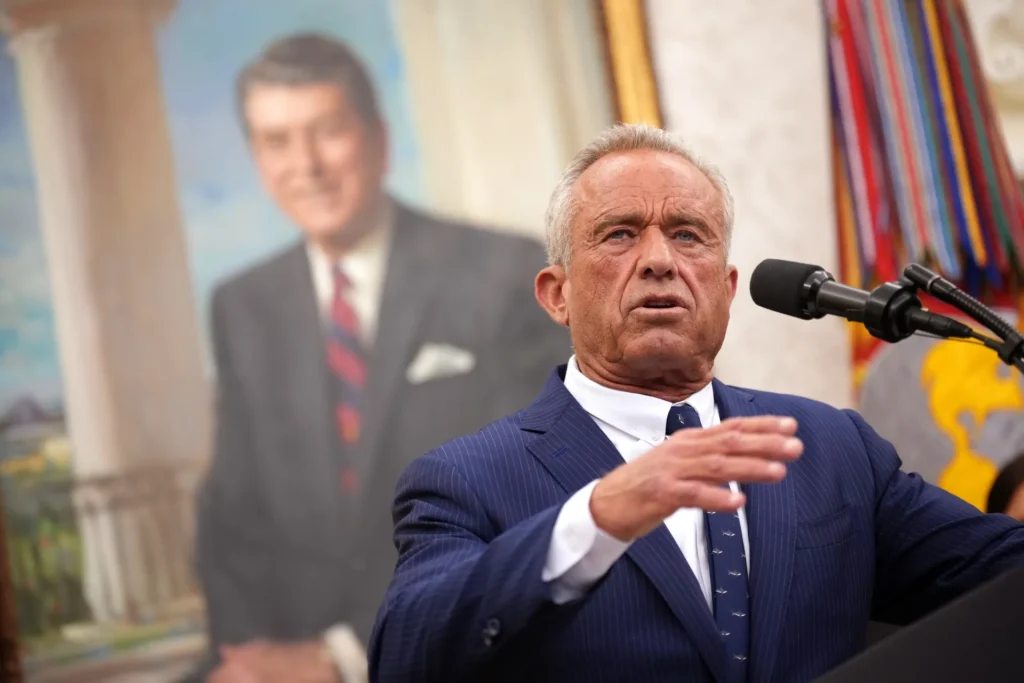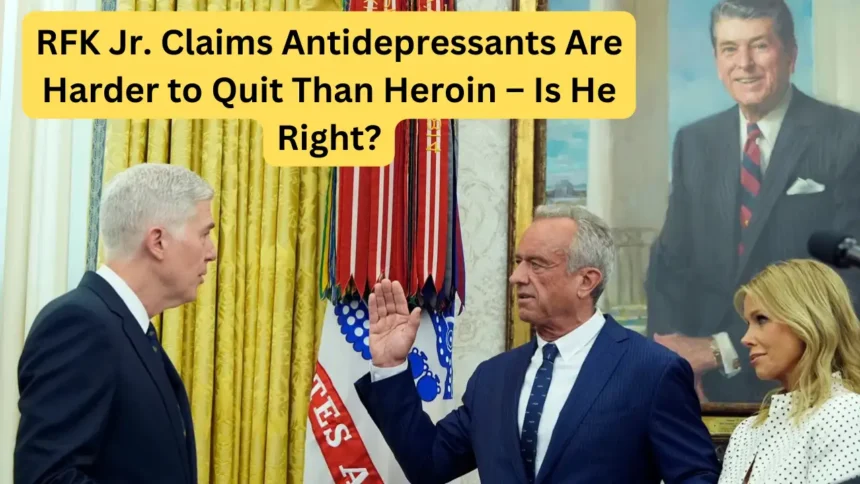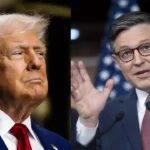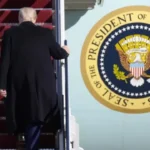Robert F. Kennedy Jr. has officially taken the reins as Secretary of the U.S. Department of Health and Human Services (HHS), and with him comes a seismic shift in the nation’s healthcare strategy.
His bold initiative, “Make America Healthy Again” (MAHA), promises sweeping reforms that could redefine public health.
But what exactly does this mean for you, your family, and the future of healthcare? Let’s break it down.
For decades, the U.S. healthcare system has focused on treating diseases rather than preventing them. Kennedy is flipping the script.
His plan prioritizes prevention—promoting healthy eating, exercise, and early screenings to combat chronic illnesses like diabetes, heart disease, and obesity before they spiral out of control.
His administration is rolling out massive public health campaigns to educate Americans on the power of lifestyle choices.
By addressing root causes rather than symptoms, Kennedy believes the nation can reduce healthcare costs while improving overall well-being.
Few topics spark as much debate as vaccine safety, and Kennedy isn’t shying away. He isn’t against vaccines, but he’s demanding more transparency. His policies push for deeper research into potential risks and stronger reporting on adverse effects.
While maintaining vaccine access, he also upholds personal choice, ensuring Americans have the right to make informed medical decisions without coercion.
Kennedy is taking a hard look at the nation’s dependence on psychiatric medications. He has voiced concerns over the overprescription of antidepressants, particularly selective serotonin reuptake inhibitors (SSRIs), and their potential role in the country’s mental health crisis.
His administration is launching large-scale studies to evaluate the long-term effects of psychiatric drugs.
Additionally, Kennedy is spearheading negotiations with pharmaceutical companies to lower prescription drug costs, bringing much-needed relief to millions struggling with skyrocketing medication prices.

Environmental Health: Fighting Hidden Threats
Kennedy has long been an environmental warrior, and now he’s bringing that fight to HHS.
His plan targets pollution-related health issues by tightening regulations on air and water contaminants—major culprits behind respiratory diseases, cancer, and developmental disorders.
By holding corporations accountable for environmental damage, Kennedy hopes to reduce chronic illnesses caused by toxic exposure, ultimately lightening the burden on the healthcare system.
Kennedy is championing an integrative approach that merges conventional and alternative medicine. His administration is directing funding toward research on holistic treatments, including acupuncture, herbal remedies, and dietary supplements.
Supporters see this as an expansion of patient choice, but critics warn of the need for rigorous scientific validation. Kennedy argues that if non-traditional therapies prove effective, they should be accessible options in the healthcare system.
Kennedy wants Americans to know exactly what they’re paying for. His MAHA initiative requires hospitals to publicly disclose the costs of procedures, creating competition among providers.
By pulling back the curtain on hidden fees, his administration aims to drive prices down and empower patients to make financially informed decisions.
The opioid epidemic has ravaged communities for years, and Kennedy is taking an aggressive stance. His plan funnels more funding into addiction treatment centers and mental health services while imposing stricter regulations on opioid prescriptions.
He’s also introducing “wellness farms”—rehabilitation centers where recovering addicts receive holistic treatment while learning job skills to reenter society. It’s a radical approach, but one Kennedy believes could be a game-changer.
Bridging the Healthcare Gap in Rural America
Rural communities face a healthcare crisis due to a lack of providers and resources. Kennedy’s solution?
Incentivizing doctors to serve in underserved areas through student loan forgiveness programs. He’s also expanding telemedicine, ensuring that even the most remote regions have access to quality care.
Kennedy’s policies have sparked both praise and criticism. His focus on preventive care, environmental health, and cost transparency has won supporters, but his stance on vaccines and psychiatric medications has raised concerns within the medical community.
Some experts worry that his skepticism toward certain pharmaceuticals could fuel public distrust in proven treatments. Others argue that his push for alternative medicine requires stricter scientific scrutiny to prevent misinformation from spreading.
The White House has formed the “Make America Healthy Again Commission” to oversee the rollout of Kennedy’s initiatives. Within the next 100 days, the commission will present its findings, setting the course for federal healthcare policy in the years ahead.
As Kennedy steps into this pivotal role, the nation watches closely. Will his ambitious vision lead to a healthier America, or will it face insurmountable roadblocks? One thing is certain—change is coming, and the stakes have never been higher.







